When Marisa Metzger watched her horses warm up at the Platinum Performance USHJA 3’/3’3” Green Hunter Incentive Championship, friends kept stopping to ask the 34-year-old why she wasn’t in her show clothes.
Metzger wasn’t sure how to respond. Should she tell them what they were expecting, that she had a physical injury or was feeling ill? Or should she tell them the truth, that her mental health had deteriorated to the point where she didn’t feel confident riding the promising green hunters she had been preparing for the event, and that though she wanted to be at the championship, she wanted to watch from the ground?
“We spend our entire year gearing up towards these moments,” she said. “We buy horses with [USHJA Hunter Championship Week] in mind. I do a lot of buying horses in Europe, sourcing them and producing them, and I go over there to find derby horses, to find horses that are nice enough to do green incentive. It’s literally what I do.”
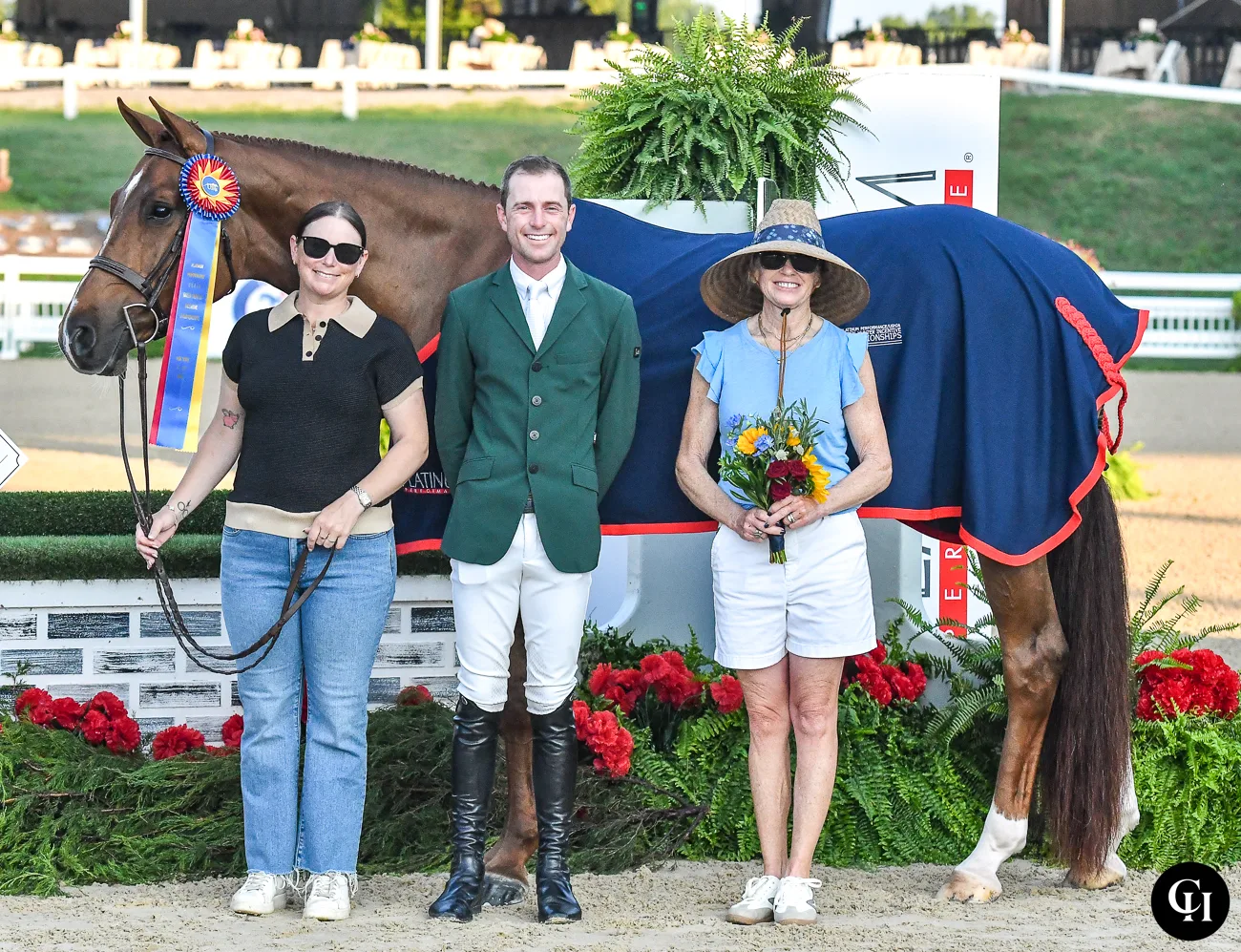
All that aside, Metzger knew she couldn’t do either of her two horses justice, and she watched their rounds from the in-gate as Jacob Pope and Nicolas Pongrancz took over the rides in Lexington, Kentucky. It was difficult for Metzger, knowing that while the roots of her depression and anxiety transcended pressures of the elite horse world, her drive to be successful in the industry exacerbated her problems.
“You’re balancing so many emotions at once,” said Metzger who works alongside Laurie Jueneman at Snowfield Farm Inc. in Parker, Colorado. “You’re dealing with horses. You’re dealing with owners. You’re dealing with [business] partners. You’re dealing with yourself. You’re balancing so many people’s expectations at the same time, and I think that that’s an added element of what we do.”
And when Metzger finally got the courage to be candid about her struggles, she received a wave of support from the community beyond what she had expected.
Finding Her Happy Place
After aging out of her junior years, Metzger worked for Sue Lightner for seven years. Like many young professionals, she worked hard and was dedicated to the horses, eager to gain knowledge and experience and take advantage of opportunities to work with extraordinary horsemen.
“I did the whole work 14- to 16-hour days, and ride 12 to 15 horses a day, and teach lessons, and manage the barn [thing],” she said. “I mean, people make everybody believe that that is part of how you become successful in this industry, right? That you only become successful by completely sacrificing yourself for the sake of the sport. And I feel like that’s just what is expected of people to be good at this, and I would never take it back. I mean, I gained an immense amount of experience and opportunities. I really believe that Sue is who shaped me as a rider and a professional, and everything that she taught me is what has allowed me to do what I do today. But I really, at that job, put every feeling—emotion, exhaustion—I put it to the side, and I made myself grind.”
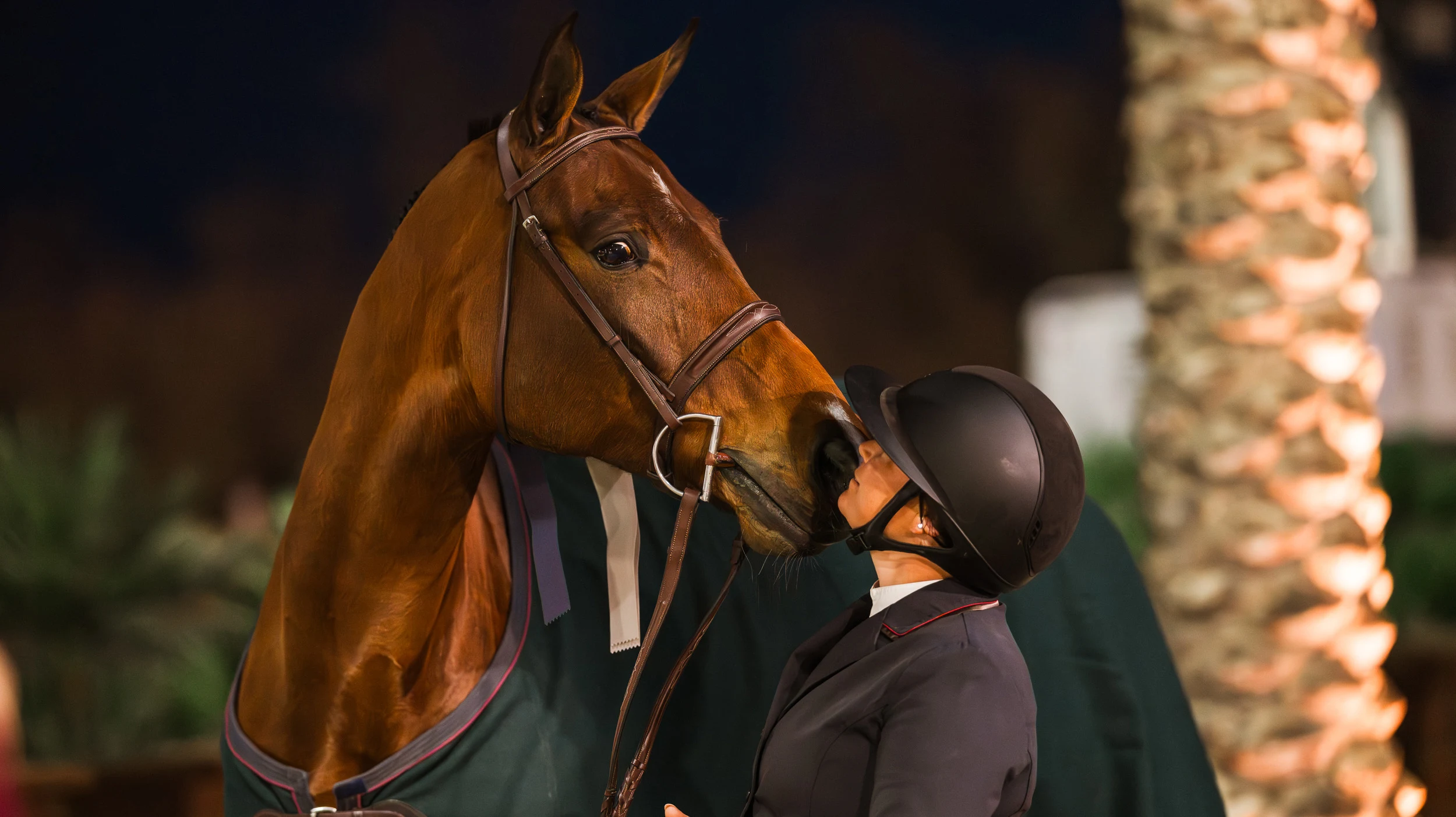
She did a stint barn managing and riding for Havens Schatt, an experience she described as “invaluable,” before heading to Northern California to work as a rider. She worked for a couple different barns but never quite found her niche. She was looking for something more stable, and she interviewed with Jueneman to manage the Interscholastic Equestrian Association team and the lesson program. That morphed into her current position as a rider and integral part of the show team at Snowfield Farm.
“I really came into a situation with her where I can combine everything that I’ve learned from everybody that I worked for prior to this, and I feel like Laurie and I have such an amazing situation here together in terms of our clientele and our horses and our goals,” said Metzger.
For Metzger, despite feeling at home at Snowfield and surrounded by people she liked, the anxiety and depression still crept back in. In the past when she felt those feelings, she could chalk it up, at least in part, to needing a change of scenery, or wanting to experience a different part of the industry. This time she felt stable in her life, but not in her brain.
“I love my job,” she said. “I bought a house in August. I love the people that I work with. I don’t want anything to change. So how do I get through this without changing my circumstances and my surroundings?
“That has led to a bigger understanding for me, that mental health is real in our industry,” she continued. “How do you find your way through mental health struggles within your happy place? I’m in my happy place, but I’m not happy. How do you navigate that?”
Pouring Gasoline On A Fire
At the start of 2025, Metzger was struggling, but she was managing. Then in April, her father, Robert Metzger, died. She described that like “pouring gasoline on the fire” of her depression. She was also devastated when two special horses in the barn got hurt.
ADVERTISEMENT
“I’ve had some other things happen in my life, and then my dad died and it was like—kaboom—and all the sudden the grief and struggle with processing the loss of my father amplified all the other challenges I was having,” she said.
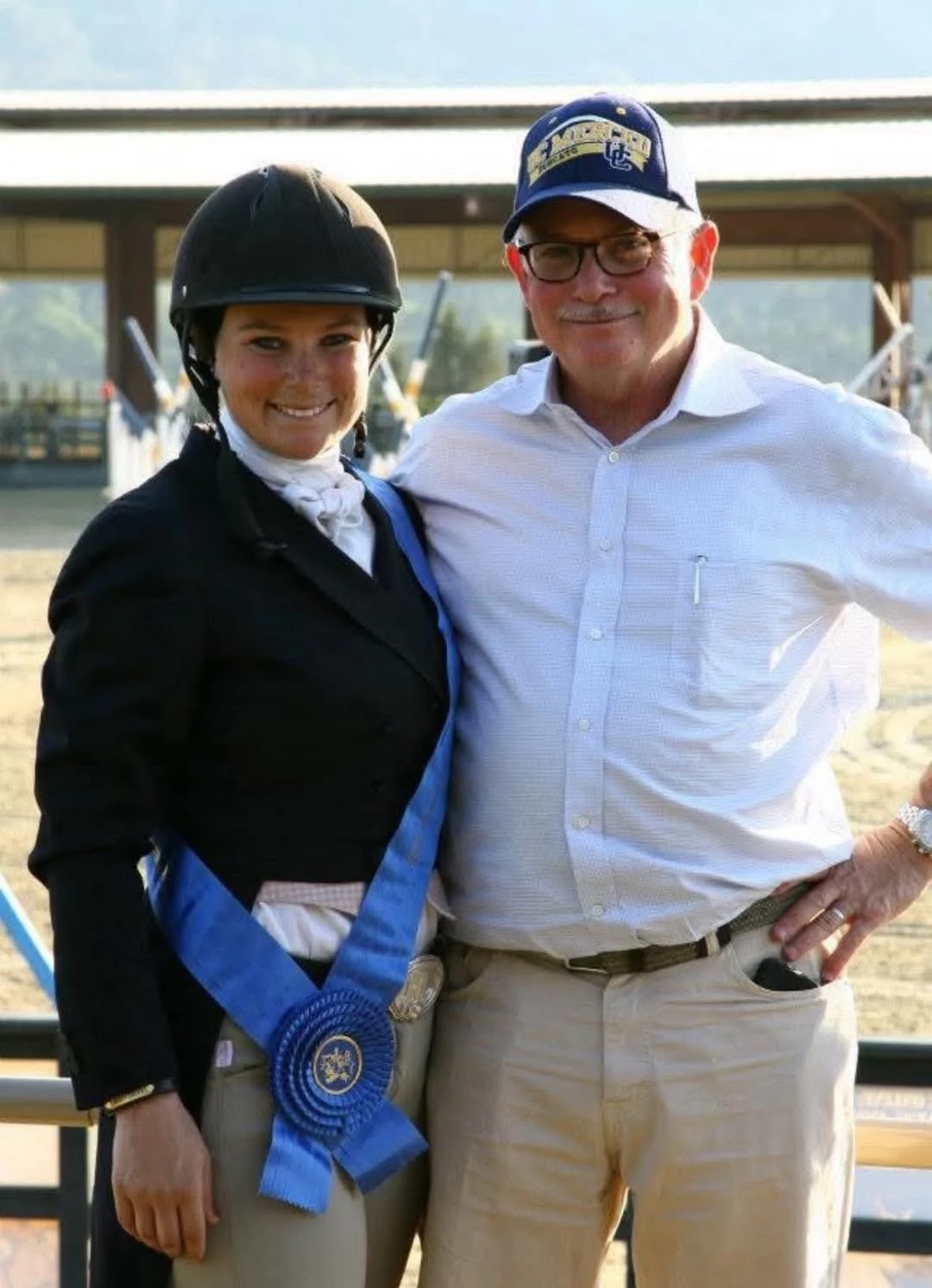
Things continued slipping downhill this summer. Toward the end of a six-week circuit with 30 horses at the Colorado Horse Park’s summer series, she went to her father’s memorial. She showed Wednesday and Thursday, flew to San Francisco that night for a Friday memorial, and after the memorial she tried a horse for a client and flew back, fully intending on showing the next day.
But she couldn’t get out of bed. The Snowfield staff and clients were very compassionate, and she forced herself to go to the show on Sunday to help from the ground.
“That was probably when I was like, ‘OK, I’m having a hard time,’ ” she said.
Making An Impact
The Snowfield team brought a smaller group of horses to the Traverse City, Michigan, and Lexington, Kentucky, circuits after that, which Marisa thought would help. But instead she found herself with more time to ruminate. It came to a head when she had a panic attack while showing a horse. It wasn’t her first panic attack—she’d had a few since several horses she was on tripped badly in a series of bizarre incidents, bringing her mortality into focus in her mind—but this one came at a bad time.
“That was when I was like, ‘OK, I have to take a step back.’ So we made the conscious decision to have Nick Pongrancz ride [Holiday, owned Jennifer Edgell, Jueneman and Metzner] in Kentucky, because I didn’t feel like I could give that customer and that horse what it needed from me.
“People in their kindness were like, ‘You’re going to do such a good job. The horses jump beautifully for you. They know you,’ ” she added. “They were trying to help, but it only made me feel like there were more people relying on me.”
“It’s a lot easier for people to understand that you need to step back when there’s a physical ailment.”
-Marisa Metzger
Even riding Kessina, the horse she owns with Jueneman, felt impossible. There were no owners she had to impress, and Jueneman was very supportive, but that didn’t make it easier. It took a little longer for her to make the decision, but in the end she told Jueneman she couldn’t show him in the USHJA 3’/3’3” Green Incentive Championship, and they arranged for Pope to take over the ride.
“[I told Jueneman], ‘Let me break down where I’m struggling. I really believe in this horse so immensely, and I can’t imagine letting her down. I can’t imagine letting myself down. I can’t imagine letting you down. I feel like I’m setting myself up to fail,’ ” she said.
At first Marisa came up with excuses why she wasn’t riding.
“Those things were true, but everybody just assumes that when you say that you mean you have the flu, right? You broke a bone, or you got hurt, or whatever. It’s a lot easier for people to understand when you need to take a step back when there’s a physical ailment,” she said.
That’s when Marisa decided to come clean about her struggles with her mental health and how that prompted her to take a break by making a vulnerable post on Facebook.
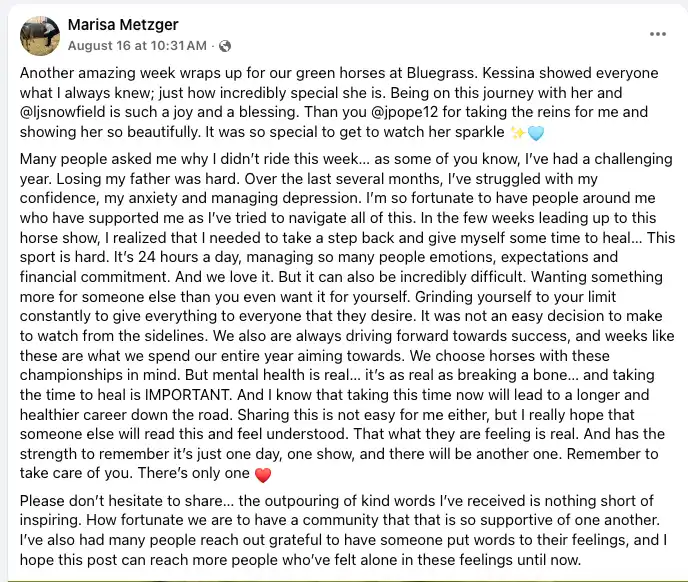
The post reads in part:
“Many people asked me why I didn’t ride this week… as some of you know, I’ve had a challenging year. Losing my father was hard. Over the last several months, I’ve struggled with my confidence, my anxiety and managing depression. I’m so fortunate to have people around me who have supported me as I’ve tried to navigate all of this. In the few weeks leading up to this horse show, I realized that I needed to take a step back and give myself some time to heal… This sport is hard. It’s 24 hours a day, managing so many people emotions, expectations and financial commitment. And we love it. But it can also be incredibly difficult. Wanting something more for someone else than you even want it for yourself. Grinding yourself to your limit constantly to give everything to everyone that they desire. It was not an easy decision to make to watch from the sidelines. We also are always driving forward towards success, and weeks like these are what we spend our entire year aiming towards. We choose horses with these championships in mind. But mental health is real… it’s as real as breaking a bone… and taking the time to heal is IMPORTANT. And I know that taking this time now will lead to a longer and healthier career down the road. Sharing this is not easy for me either, but I really hope that someone else will read this and feel understood. That what they are feeling is real. And has the strength to remember it’s just one day, one show, and there will be another one. Remember to take care of you. There’s only one.”
ADVERTISEMENT
The response was immediate. Marisa was flooded with private messages and texts of people offering support, empathizing with her and sharing their own struggles.
“I’m really amazed by the response to the post. I definitely have had thoughts to myself like, ‘I wish more professionals would talk about this, professional to professional, because I would love to know how other people handle it, how they deal with their own nerves and anxiety, and balancing the clients and their expectations,’ ” she said. “But people don’t really want to talk about it.”
Marisa also received many messages from parents of juniors and amateurs. That was when she realized this was something that she and others in the horse world need to talk about more.
Finding Help
Marisa has been working with sports psychologists for the past four years.
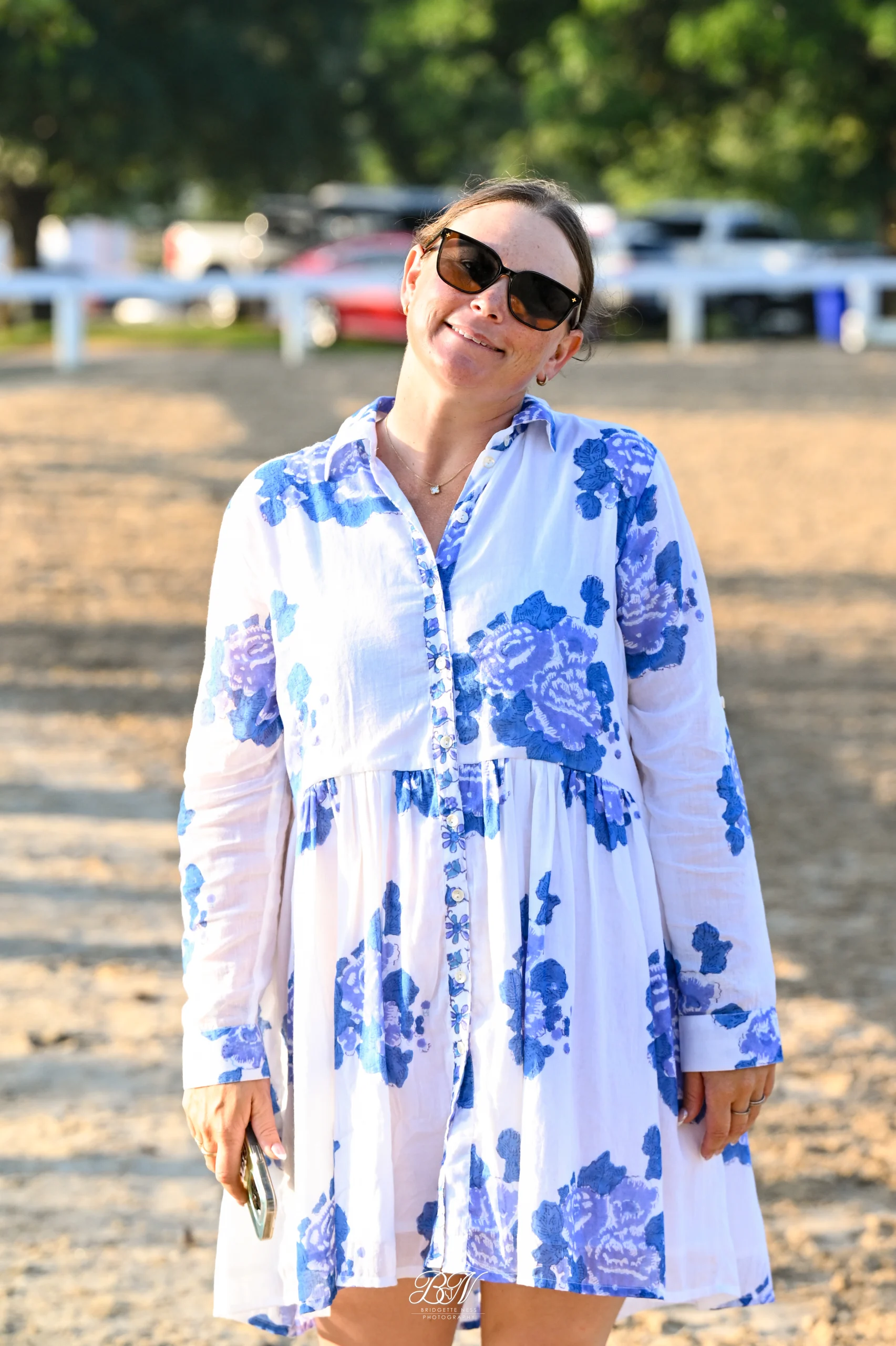
“I’ve worked with four different people,” she said. “You have to find the right person for you. There are different approaches to sport psychology, and if someone isn’t working for you, or you don’t feel like it’s hitting on the root of your challenge, look for someone else. I did not do that at first. I was like, ‘I’m the problem. They’re good at their job.’
“I’ve also recognized and I’ve learned the value of medicine, and that some of this is chemical, and it’s bigger than you,” she continued. “You want to feel better, but you can’t. There are people in the world who do not deal with anxiety and depression, and they don’t understand not because they don’t want to—there can be really sympathetic people out there—but they don’t get it because they don’t experience it. And there’s definitely a stigma around it. There’s also an opinion within our industry that you have to learn how to be strong. You can’t have emotion. I agree that you can’t be emotional in riding, but you can have emotion.”
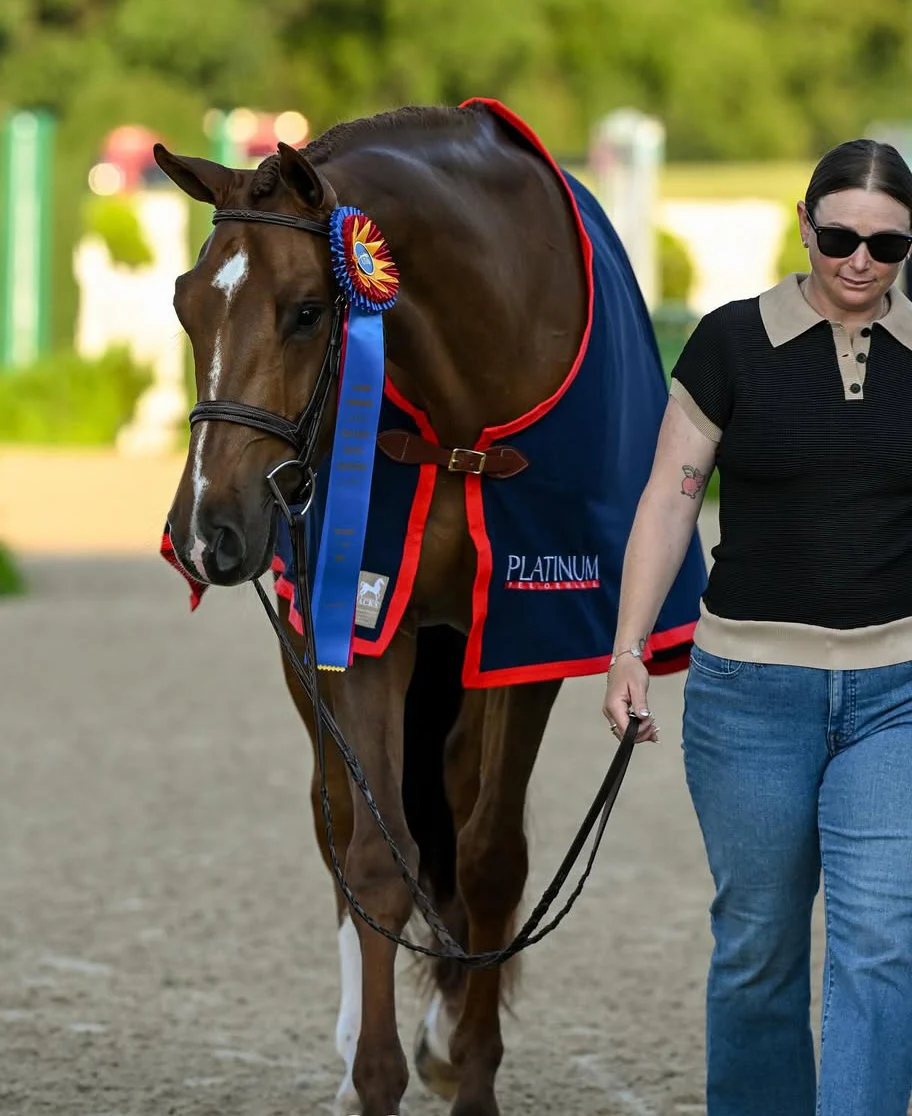
Marissa also works with a regular psychologist and has leaned into some more progressive treatments like stellate ganglion block injections.
“They block the nerve cluster in the base of your neck, to help reduce fight or flight reflexes,” she said of the treatment.
Despite her talk therapy, anti-anxiety medications and medical interventions, her symptoms persisted, prompting her break. Getting treatment is a huge time and financial commitment—she pays for most treatments out of pocket—but Marisa is willing to do whatever it takes to feel better.
Marisa pointed to the epidemic of horsemen who don’t care for their physical or their mental health, some of whom turn to drugs or alcohol or other unhealthy practices to cope.
“I grew up a bit still in that period of time when tears were not acceptable, and if you weren’t physically hurt, you’re not hurt at all,” she said. “And you know, I saw a meme on the internet the other day in reference to Tori Colvin and what she did at derby finals [riding her top horse to the win after taking a tough fall]. The meme said, ‘Hospital or [get back on the] horse.’ I was like ‘No, no.’ What Tori did was super human, but truthfully that is even more of an example of mental fortitude. She had such immense clarity of mind that she could mentally be strong enough to do that. When I saw that [meme] I was like, ‘Are you kidding me? Let’s get over the Dark Ages.’ ”
“I grew up a bit still in that period of time when tears were not acceptable, and if you weren’t physically hurt, you’re not hurt at all.”
Marisa Metzger
For the time being she’s cut her work schedule back to three days a week in an attempt to address her mental health—a luxury she knows the overwhelming majority of people in the horse world don’t have. She’s focusing on things that bring her joy, both within and outside the horse world, like working with young horses, cooking and home improvement projects. She feels blessed that she loves her job and has a supportive business partner in Jueneman, and that she’s independently financially secure.
Marisa is optimistic about seeing change in the horse industry around issues of mental health. She pointed to Equestrians for Mental Health Awareness, a California group that seeks to make a positive impact around equestrians and mental health challenges, as an example of a group helping those in the sport.
“There are people who are in our industry that are barn managers, braiders, assistants, grooms, who aren’t in the ring, and so people are like, ‘You don’t need sports psychology.’ But you need a different kind of support, but you also need support or somebody who understands our industry and the demands of our industry, because if you go talk to some regular doctor on Zoom, a lot of them don’t understand where you’re coming from,” she said.
“I had to hit almost a breaking point [to take a break],” she added. “You don’t want to have to get to the end of your rope before you take a deep breath and figure out what needs to change. And a lot of people’s ‘end of their rope’ looks different.”














